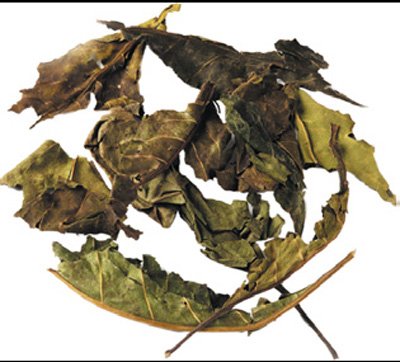Vasa
Ayurvedic Medicine

Vasa
Malabar nut (E), Vasaka (H), Adusa (H):
Vasa means 'perfume' and is a common evergreen perennial shrub growing all over the plains of India and Sri Lanka. It is a powerful bronchodilator and expectorant for use in respiratory conditions with high kapha and pitta.
Lungs It is a specific for respiratory congestion and wheezing. As a powerful bronchodilator it eases breathlessness and bronchospasm. It clears inflammatory pitta heat and liquefies congestive kapha. It can be used where there is inflammation from an allergic response as it clears the lungs and nostrils. Its diaphoretic properties act on rasa dhatu and can be utilised in fevers to clear ama and displaced pitta. As it disperses stagnation and strongly scatters prana vayu it can aggravate vata. Blood It is eulogised in the Sanskrit literature for stopping bleeding (raktastambhana). Its effect on raktapitta is to astringe the mucous membranes and it is effective in bleeding from ulcers, menorrhagia, epistaxis and the gingivitis with high pitta. Skin Its ability to clear heat from rakta dhatu and cool bhrajaka pitta make it a useful herb for inflammatory skin diseases with a pitta–kapha pathology. Its mild diaphoretic action can help to clear kapha toxins trapped in rasa dhatu. Gynaecology Its astringency causes contraction of the uterus. This can be useful in bleeding and prolapse. Its oxytocic properties make it useful as a parturient to facilite labour but it should not be used at any other stage during pregnancy. Heart Vasa stimulates the vagus nerve and causes vasodilation of the capillaries. This can help to increase the contractile ability of the heart and also lower blood pressure.
 Jatamamsi
Jatamamsi Bibhitaki
Bibhitaki Sarpagandha
Sarpagandha Cinnamon
Cinnamon Gotu Kola
Gotu Kola Dhattura
Dhattura Arjuna
Arjuna Haritaki
Haritaki Brahmi
Brahmi Tagarah
Tagarah Varuna
Varuna Bala
Bala Test your English Language
Test your English Language  Daily Meditation can Improve your Life
Daily Meditation can Improve your Life Fast and Furious Cars in the world
Fast and Furious Cars in the world Weird Place Names
Weird Place Names Tips for Best Student in the class
Tips for Best Student in the class Dams in India
Dams in India Festivals of India
Festivals of India Top High Speed Bullet Trains
Top High Speed Bullet Trains Most Expensive Cars in the World
Most Expensive Cars in the World Best Cities for young People
Best Cities for young People Best Cricketer
Best Cricketer




